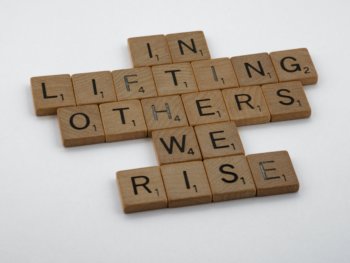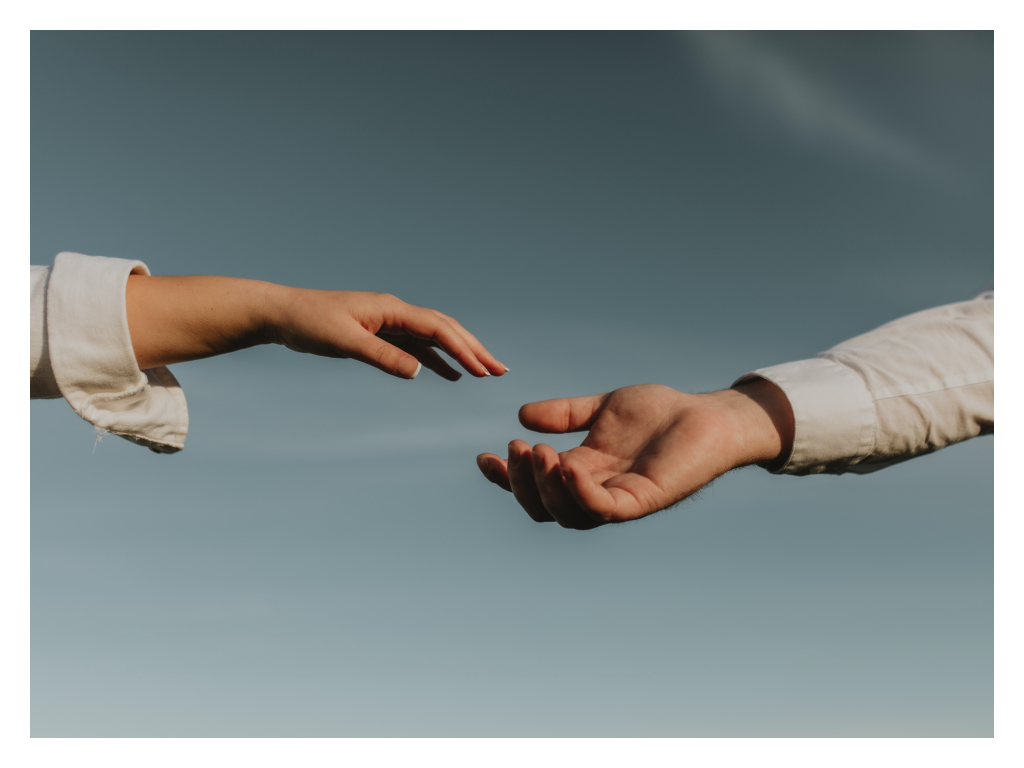We may not be able to change the world, but with incremental acts of kindness and compassion, we plant the seeds for a better world, and a richer, healthier, and happier life for ourselves and others. Let’s look at the effects of kindness, on ourselves, others, and the world.
Dr. Monica Vermani is a Clinical Psychologist specializing in treating trauma, stress and mood & anxiety disorders, and the founder of Start Living Corporate Wellness. She is a well-known speaker, columnist and advocate in the field of mental health and wellness. Her book, A Deeper Wellness, is now available on Amazon, and her in-depth online self-help program, A Deeper Wellness, offers powerful mental health guidance, life skills, knowledge and healing, anywhere, anytime. https://www.adeeperwellness.com/ https://www.drmonicavermani.com/
As human beings, while we are hard-wired to perceive threats and act in our own defense, we are equally hard-wired to receive and give kindness, and show caring and compassion. In fact, our very survival depends on it. Unlike many living creatures, we are utterly helpless when we are born and depend completely and utterly on the selfless care and kindness of other people for support, sustenance, and safety much longer than any other living being on the planet. Everyone who has survived infancy has experienced unreciprocated kindness and caring.
It’s A Wild Wild World
Over time, as we grow, we receive all sorts of messages that fly in the face of our kind and caring natures. We are told to toughen up. We learn that the world can be a competitive, and a harsh place where we need to look out for number one. While indeed we do need to look out for ourselves, and there are times when we will be competing for a place on a team, a spot in the college or university of our choice, a job, or any number of scenarios. But this does not mean that we should turn off and tune out our compassionate and caring nature, we do so not only at the expense of others but to our own detriment.
The Benefits Of Caring
Cartoonist Scott Adams once said: “There’s no such thing as a small act of kindness. Every act creates a ripple with no logical end.” We benefit exponentially from even the smallest acts of kindness in many ways. As anyone who has ever been stuck in gridlock traffic will attest, a thoughtful small kind act, like letting another vehicle merge into their lane, immediately lowers stress and has a positive effect on their mood. They feel less stressed and a little more in control of their space. Further, their act of kindness may imprint on the recipient of that act of kindness, as well as others who have witnessed the act of kindness. In turn, several people could choose to pay that act of kindness forward.
In a busy store, a parking lot, an amusement park, an entertainment venue, a restaurant — virtually anywhere people convene and find themselves pressed for time, space, patience, or where conditions cause stress and where there are plenty of me-first behaviors on display — choosing to be kind and caring to others models strength and character, which will positively influence others and spread far and wide. Kindness and caring, after all, are infectious.

Why We Should Care
There are many benefits for those acting in caring and kindness to others. Being kind is beneficial to the person carrying out the act, both psychologically and physically, right down to the cellular level. Even the smallest act of kindness gives us a greater sense of control in the world. It also boosts our immune system and reduces anxiety. Our ‘feel-good’ hormone, oxytocin, reduces inflammation, which is related to a host of ailments.
Of Particular Significance At This Time In The World
At this point in time, where COVID has left many people struggling with anxiety and worry, caring and compassion can make the world a kinder, less scary place to be. When we are kind to others, we get out of our own heads, engage with others positively, and help them get out of their heads as well. For people with Social Anxiety, who struggle with irrational fears of being singled out, judged, ridiculed, ignored, or ostracized in social situations, and feel awkward, insecure, and bad about themselves, being the instigator of an act of caring or kindness creates a positive memory and brings them into the present in an affirmative way. It does the same for people struggling with Generalized Anxiety, who struggle with excessive levels of worry, over-thinking, rumination patterns and anxiety over several areas of their lives.
Kinder, Gentler Feedback
Choosing to withhold negative feedback from friends, colleagues, and family members who seek your guidance, opinions, and approval, and choosing a more compassionate way of expressing concerns or reservations, can also have a beneficial effect. A kinder way of responding to others not only leads to better communication, it also lowers the risk of unnecessary conflict and unintentional residual negative feelings, and low self-worth of the person seeking validation or feedback. Removing judgment and bringing in kindness and caring when voicing our opinions can create a tremendous positive shift in interpersonal and professional relationships.

A Mindful New Beginning
Armed with the knowledge of the benefits to ourselves and others, we can begin mindfully practicing kindness and caring in everyday situations. Start small, maybe by holding the door for a parent struggling with a stroller and packages, letting someone with one or two items ahead of you when standing in line at the grocery store, giving up your seat on a train or a bus to someone who needs it more than you.
Pay attention to how this makes you feel… how the recipient of your thoughtful act responded to your kind gesture, how others have observed this event. Think about how you feel in the moment, how different your experience would have been had you not made the effort to act in a caring manner. When we’re paying attention, the benefits of caring and compassion will be unmissable, and caring and kindness can become a healthy and world-changing life-long habit.
Dr. Monica Vermani’s tips on how to dare to care
Dare to care! Bringing more care and kindness into everyday life is a choice. Start simple and small and see what it brings and where it leads! Here are five ways to help get you started!
Start with one intentional act of kindness a day. A simple gesture that helps someone, even in a small way, could mean the world to someone who is having a tough time.
Check an impulse to react negatively to someone who has acted thoughtlessly or selfishly.
Choose a kinder way to respond when asked for your opinion.
Pay attention to how caring for others makes you feel, and how it shifts the mood and behavior of other people.
Remember to be kind to yourself as well as others. Being kind and caring includes being kind to yourself.
Main Image Photo Credit: www.unsplash.com
Dr. Monica Vermani
Author
Dr. Monica Vermani is a Clinical Psychologist who specializes in treating trauma, stress, mood & anxiety disorders and is the founder of Start Living Corporate Wellness. Her book, A Deeper Wellness, is coming out in 2021. www.drmonicavermani.com














































































































